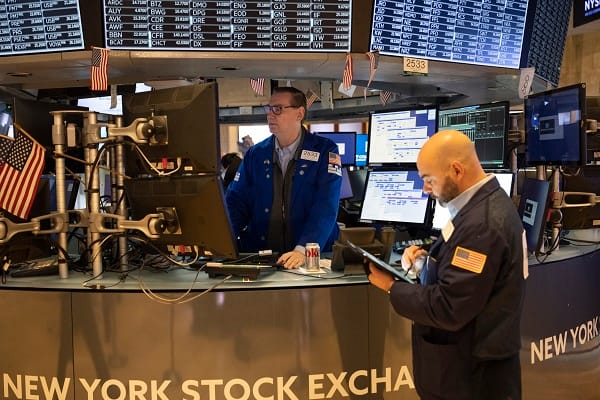S&P 500 futures rose by nearly 0.3% today, briefly touching a new record high, while Nasdaq 100 futures advanced around 0.5%, also reaching fresh all-time highs.
This surge in U.S. equities futures comes ahead of a series of high-impact economic releases scheduled for this week. Investors appear to be betting on the resilience of the U.S. economy and its corporate sector amid ongoing uncertainty surrounding trade tensions and monetary policy.
Markets are particularly attuned to the evolving landscape of trade negotiations, which have escalated with new threats and countermeasures.
After President Trump warned of potential tariffs on the European Union, the EU is reportedly preparing a retaliatory tariff list targeting U.S. imports.
According to the Bureau of Economic Analysis, U.S. trade with the EU accounts for 4.9% of its GDP, compared to just 2.2% with China. Moreover, total transatlantic trade is nearing $10 trillion, according to the American Chamber of Commerce to the EU, highlighting the potentially severe consequences of any trade disruption with Europe.
Moreover, the market is awaiting key releases today, including the Consumer Price Index (CPI), along with Producer Price Index (PPI) data, retail sales figures, and the University of Michigan surveys later this week. If inflation accelerates unexpectedly and the surveys point to persistently weak consumer sentiment and elevated inflation expectations for the year ahead, this could reignite market concerns about tariff-driven inflationary pressures—potentially requiring interest rates to remain elevated for longer.
However, despite Trump’s repeated threats of imposing steep tariffs on the EU and Canada unless deals are reached before the end of July, the market seems to be pricing in the likelihood of even last-minute agreements that could avert a full-blown trade war.
The U.S. economy has shown remarkable resilience despite President Trump’s ongoing trade battles, with inflation remaining subdued and unemployment stable, according to The New York Times. Still, economists warn that further tariffs, particularly against the EU, could have dire consequences, potentially leading to stagflation. Persistent threats and elevated uncertainty also risk discouraging business investment and hiring, as the Times also noted.
Equity markets’ current strength comes amid relatively high valuations, which could make them more vulnerable to shocks. The S&P 500’s price-to-earnings (P/E) ratio is now at its highest level since mid-2021, based on data from Multpl.
If corporate earnings come in strong, demonstrating the ability to navigate trade uncertainty and elevated interest rates, this could validate these lofty valuations and pave the way for further gains.





Leave a Comment